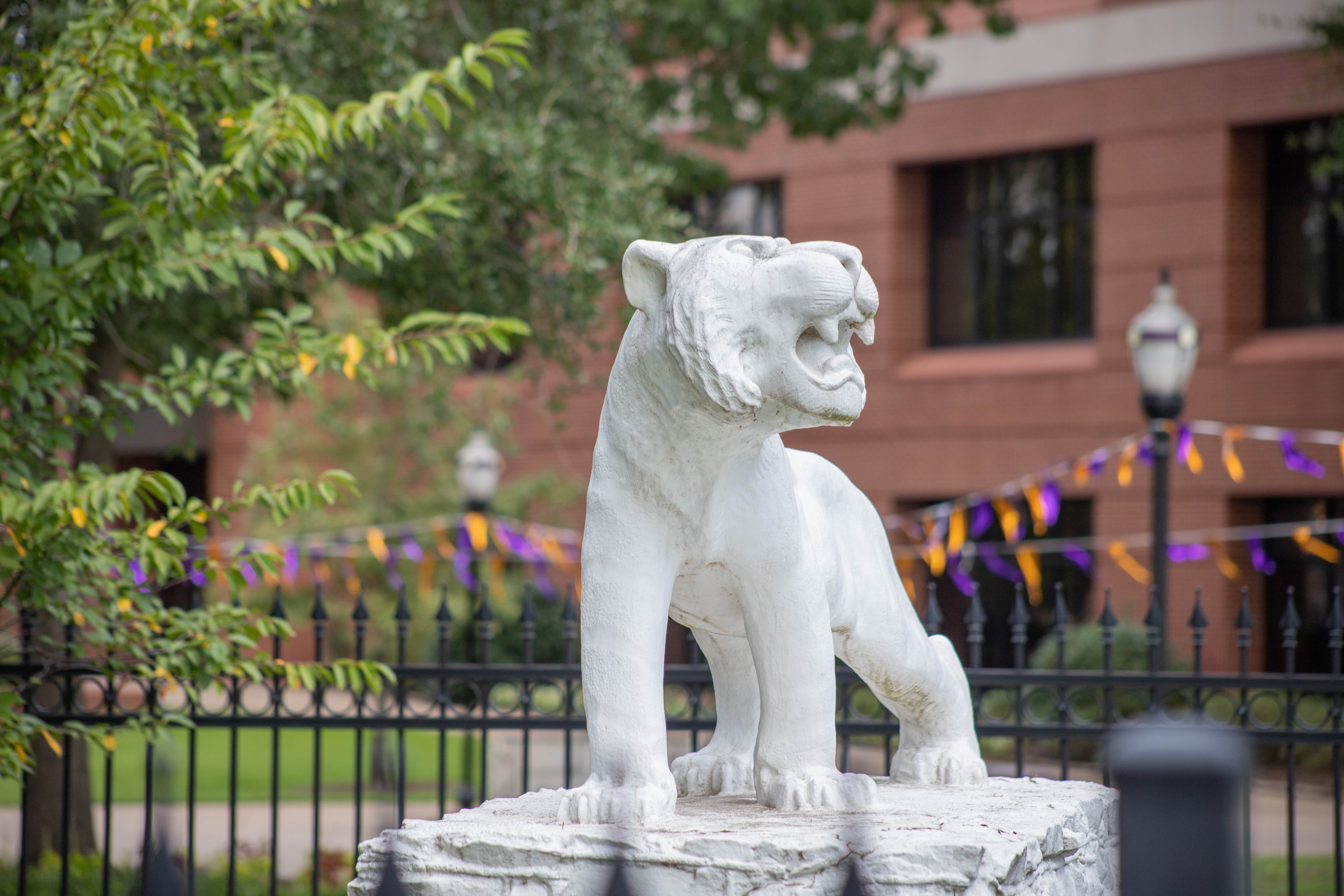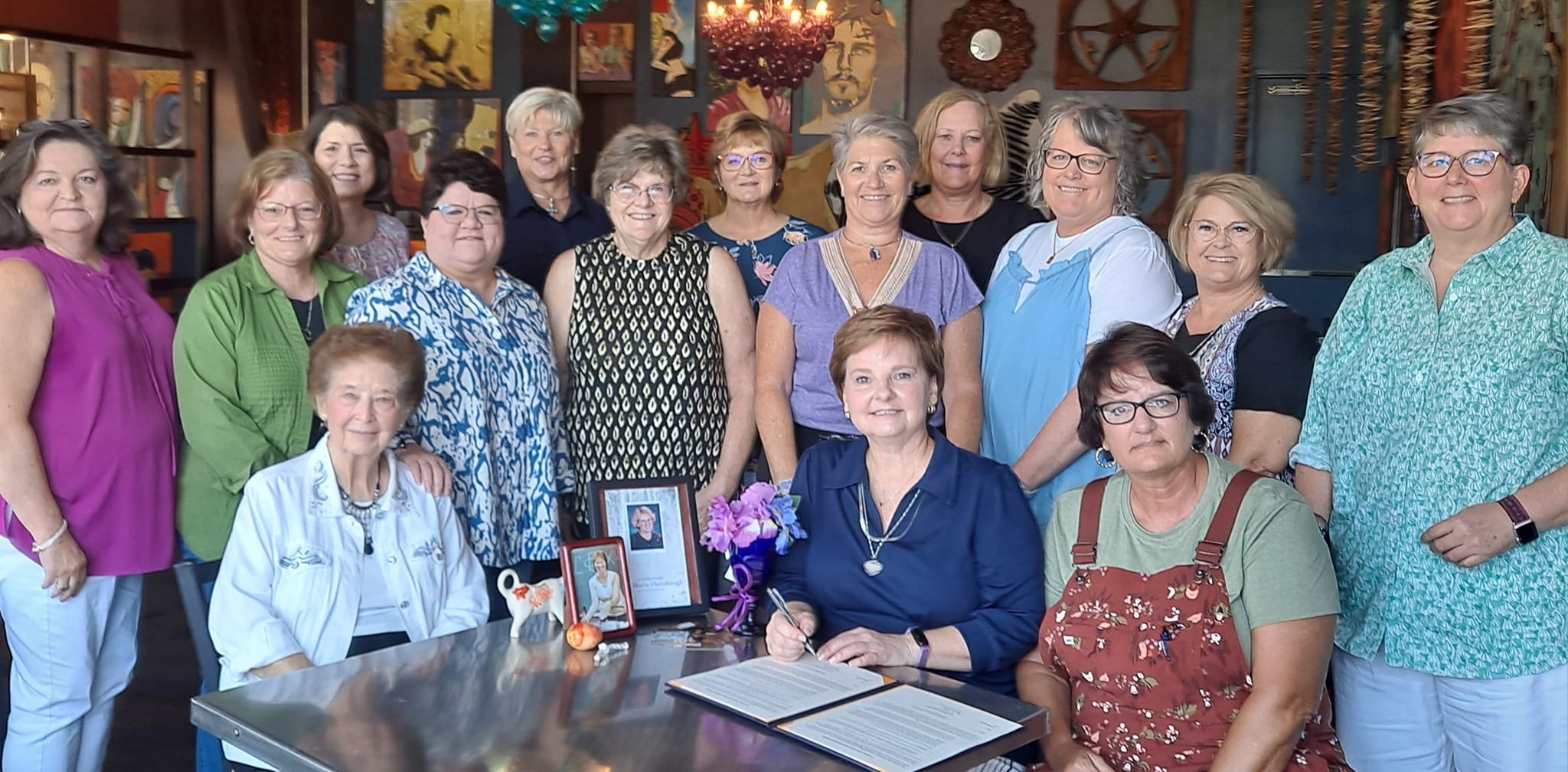About this time last year, Andrew Stephens, a graduate of Ouachita, demanded that Dr. Johnny Wink, professor of English, purchase Douglas Hofstadter’s book “Le Ton Beau de Marot: In Praise of the Music of Language.” Dr. Wink obeyed and was soon in awe of both the book and the author.
“I did what Andrew told me. I went to my computer. I got on Amazon. I ordered up the book. It came. I began to read it. And I was bewitched,” Wink said. “I realized I was in the presence of a great of writer as I’ve ever been in the presence of.“
The great American thinker Douglas Hofstadter won the Pulitzer Prize and the American Book Award for his work “Gödel, Escher, Bach: An Eternal Golden Braid.”
But Hofstadter is not only a writer. He is a physics professor, linguist and pianist. Yet it does not stop there. While his official title at the University of Indiana is Professor of Cognitive Science and Computer Science and director of its Center for Research on concepts and cognition, he holds several departmental chairs. But the man does not dabble. He excels.
And as for his physics, according to Indiana University’s online faculty description, in graduate school, Hofstadter discovered that “crystal electrons in magnetic fields have a beautiful self-similar energy spectrum, the graph of which has since been dubbed the ‘Hofstadter butterfly.’”
As the result of correspondence between Wink, Hofstadter and professor of English Jay Curlin, Hofstadter lectured in Mabee Recital Hall on Sunday night. He shared his passion and skill for Russian translation.
He read aloud from several translations, including his own, of Pushkin’s novel in verse “Eugene Onegin.” He combined portions of the translations to form an abbreviated version of the novel, thus allowing the audience to peruse the text, an experience he described by using the metaphor of flying in a Concord.
First he explained the importance of Pushkin and the beauty of the novel.
“I want to give a sense by some anecdotes the importance of Pushkin,” Hofstadter said. “And the importance of ‘Eugene Onegin’ in particular.”
He described his personal experience with this Russian novel in verse.
“My wife and I had just finished reading ‘The Pickwick Papers’ aloud to each other, and we were looking for something else to read and I said, ‘Look, I’ve a crazy idea, I’ve got two translations of this Russian novel that inspired Vikram Seth and one is the one that inspired him and the other is by this other random American, so why don’t we just read the two together … and that’s what we did.”
Hofstadter and his wife were bewitched by a certain one of the translations, and Hofstadter describes an enlightening revelation he experienced when talking to his babysitter.
“We happened by pure chance to have a Russian who was babysitting for us at the time,” Hofstader said. “And one day we were down in the kitchen and I said to Marina, I said a rather naïve question, ‘Carol and I are reading ‘Eugene Onegin.’’ Have you ever read the novel’ I later came to understand that asking a Russian that question is like asking an American ‘Have you ever heard of baseball?’ And you know, she laughed, and said yes, that she had memorized the entire novel when she was a teenager.”
Hofstadter laments America’s lack of appreciation for the beauty of both his own translation and other beautiful translations of Pushkin. He is at a loss to understand why Americans are so apathetic towards “Eugene Onegin.” After the lecture, he lamented the imperialism of American culture due to large enterprises such as Coca Cola and McDonalds, and he praised the Russian ability to love poetry and to inculcate that same passion in their youth.
Hofstadter earned a Bachelor of Science in Mathematics from Stanford University in Palo Alto, Calif., and both a master’s and doctorate in physics from the University of Oregon in Eugene. n





